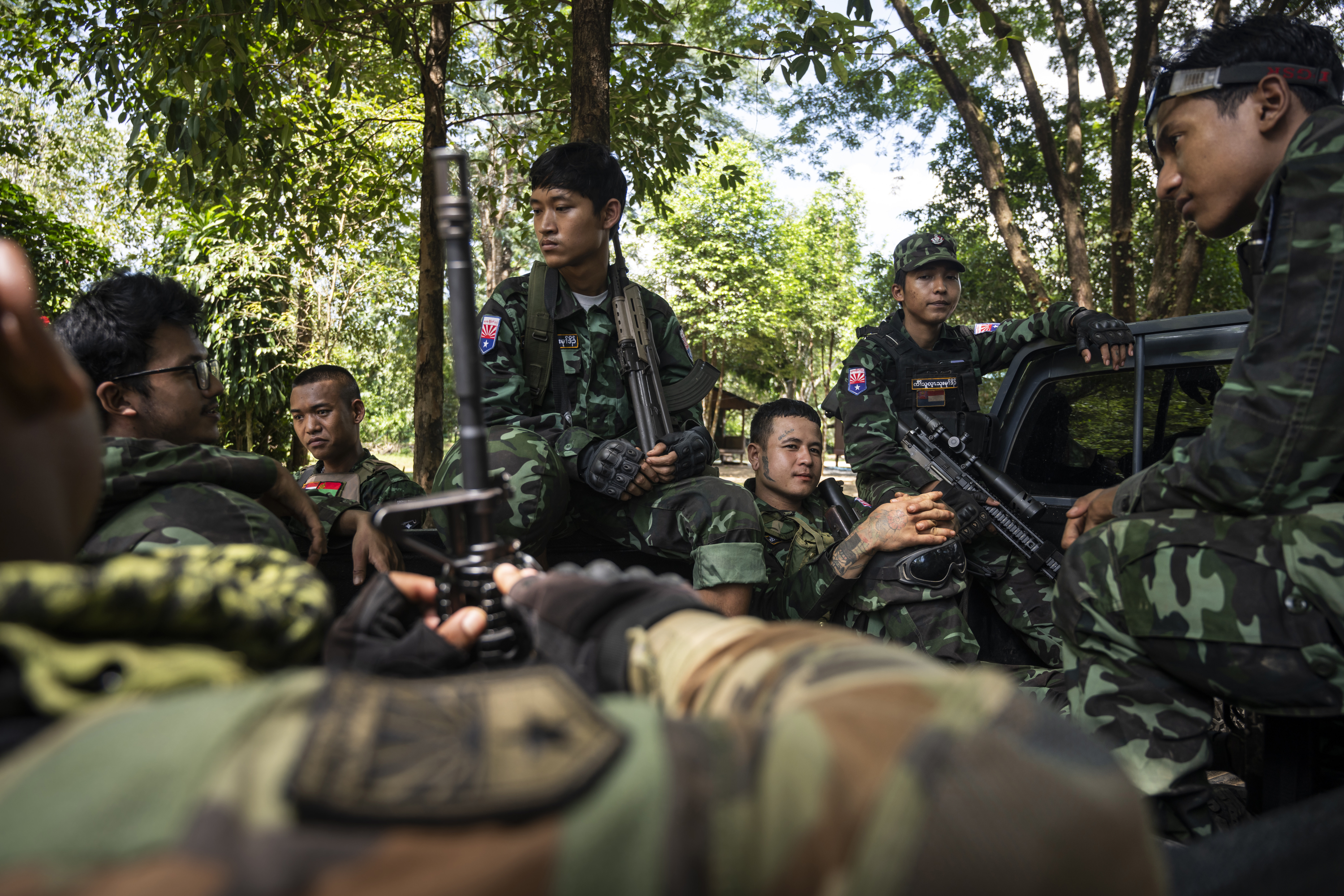SOUTHEASTERN MYANMAR (THE WASHINGTON POST) – For decades, Myanmar’s ethnic minorities have rebelled against the country’s military, but mostly on their own and with little success.
Now, however, nearly three years after a military coup ousted Myanmar’s democratic government and triggered a civil war, it’s these ethnic rebels, camped out in the country’s mountains and jungles, who pose the biggest potential threat to the ruling junta.
While Western governments and international aid agencies have focused much of their attention on the pro-democracy forces led by exiled members of the ousted civilian government, it is increasingly the ethnic rebels tenuously allied with them who are shaping the trajectory of the conflict, security analysts say. These groups have troops, guns and grenades. They control territory, collect taxes and run schools and hospitals. Just in recent weeks, they’ve notched battlefield victories that security analysts say have pushed the junta into its weakest position since the coup.
On a recent morning, Washington Post journalists motored down a mud-coloured river on a long-tail boat for a rare visit to the undisclosed headquarters of the country’s oldest and one of its most powerful ethnic armed groups: the Karen National Union, or KNU.
Beyond a river bank and past a curtain of trees, several hundred soldiers from one of the KNU’s seven brigades surrounded a clearing that functioned as their base. Some stood on trucks with AK-47s slung across their chests; others squatted on the ground next to grenade launchers and shoulder-fired rockets. In the centre, at a long table, sat a bespectacled 64-year-old rebel leader cracking open a fistful of betel nuts.
“We are doing this revolution to get peace,” said P’doh Saw Thaw Thi Bwe, the joint secretary general of the KNU. “But not just for our territory. For everyone.”
In exclusive interviews, Thaw Thi Bwe and other KNU leaders described the group’s armed campaign and its growing efforts to strike alliances with other ethnic rebels and resistance groups.
The KNU, which has been fighting the military on behalf of ethnic Karen people for 74 years, was the first of several rebel groups to oppose the 2021 coup. Within months of the military’s takeover, it voided a previous cease-fire agreement and resumed attacks on military positions across southeast Myanmar. KNU leaders say they have also armed and trained thousands of insurgents from other ethnic groups, including the Bamar ethnic majority, which has traditionally supported the military. (The Bamar lent their name to Burma, the previous name for Myanmar)
The decisive role of ethnic insurgents in the conflict has come into sharp relief in recent weeks after an alliance of several other rebel groups launched a surprise offensive in Myanmar’s northern Shan state, forcing the military to publicly cede control over major townships. In the south, Karen rebels and their allies, the Karenni, launched simultaneous attacks on military bases, while in the west, a militia representing ethnic Rakhine people opened a new front in the war against the military.
The synchronised attacks, which analysts call unprecedented, are still unfolding. But the escalation has made clear that Myanmar’s ethnic rebels are no longer a peripheral factor, according to Min Zin, who runs the Myanmar-based Institute of Policy Studies – Myanmar. “They’re kingmakers,” he said.







